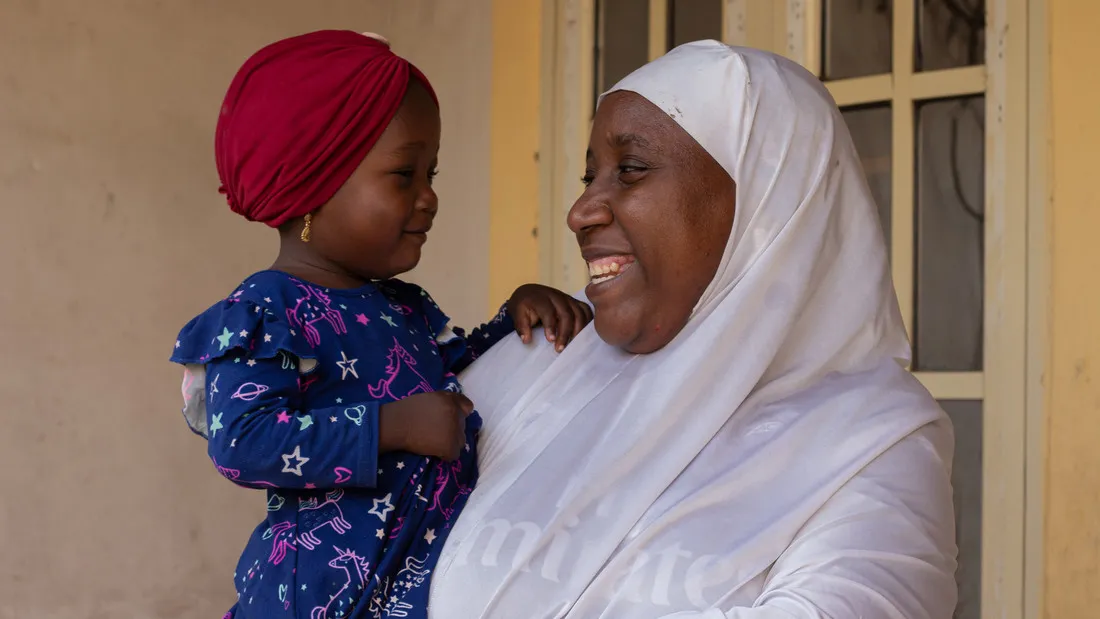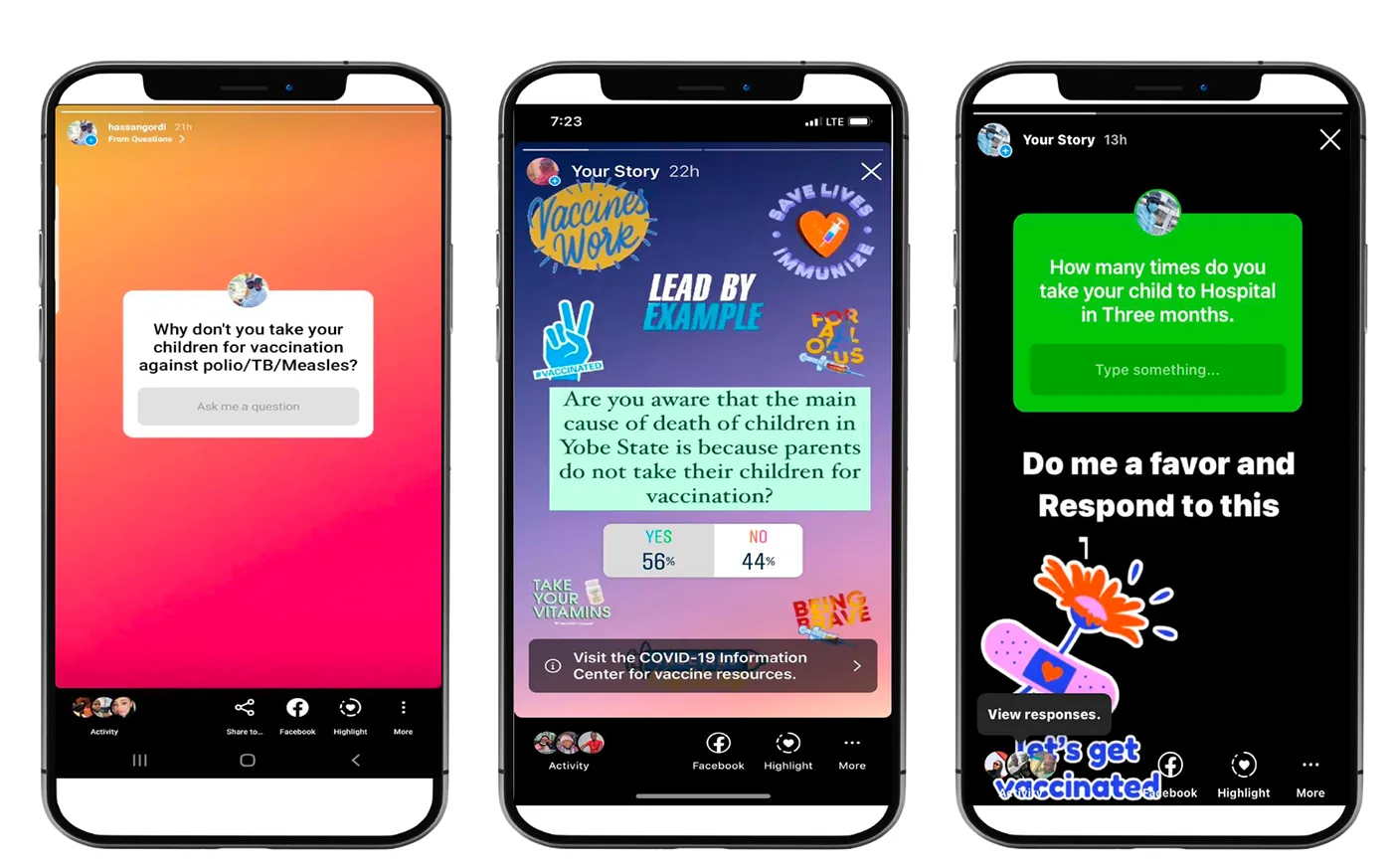Executive summary
“Health is wealth.” When CARE Nigeria worked with 25 trusted messengers in Yobe State, this was a popular phrase that many of them wrote in their posts. The phrase went on to be a key tagline in a Social Behavioral Change Communications (SBCC) campaign supporting childhood immunizations.
TL;DR
- CARE Nigeria worked with 25 trusted messengers in Yobe State reaching over 2 million people in Northeastern Nigeria across a 12-week multi-phased campaign
- Female messengers had a +337% higher video completion rate than their male counterparts, yet it was male messengers that had the highest ad recall.
- The third phase of the campaign utilized Meta’s Lead Gen ad format to create an on-platform survey to garner deeper insights about childhood immunization.
About the campaign
The campaign strategy took a three-phase approach. From cross-country learnings and UNICEF’s vaccine messaging guide, the CARE Nigeria team knew that creating content with trusted messengers was a successful strategy for driving positive change in knowledge, attitudes, and behaviors. Expanding on this knowledge, the team wanted to understand how scaling the use of trust messengers would impact behavioral changes. To do this, they worked with influencer agency, AIfluence to collaborate with 25 trusted messengers from Yobe State. These trusted messengers ranged between 23 and 35 years old and had an average following between 1,000 and 22,000 on Facebook and Instagram. The trusted messengers had backgrounds ranging from parents, uncles, business owners, nurses, a teacher, journalists, and public servants.


